Weekly Newsletter from 4 August to 10 September

This post is also available in:
![]() Arabic
Arabic
Egypt
The ballots in the Senate run-off elections of 2020 took place at home on Tuesday the 8th of September to decide over 26 seats for individuals, in 14 governorates. The first round of elections took place on August 11 and 12, when seats were decided by the list system, 74 seats in the individual system, and 26 seats were postponed for the run-off round.
As for what happened in the first round, a limited number of Egyptian citizens went to vote in the run-off. This reflects the erosion of the legitimacy of the political regime. So, the regime’s candidates and its parties used money and in-kind assistance for citizens to urge them to vote. These practices prompted one of the candidates to withdraw on the last day of the elections. These violations were monitored for the integrity condition in the elections by activists and Arab and international newspapers. The supporters of Nation’s Future Party were accused of giving money to voters, amounts ranging between 50 and 100 pounds, in order to vote for the party’s candidates. In addition to in-kind food distribution, they also organize knocking doors campaigns to threaten citizens with a “financial fine” if they do not vote, especially the elderly and women.
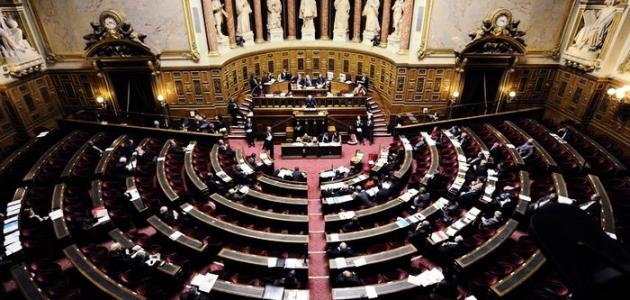
The legislative authority in Egypt: The Senate is ready and the House of representatives is coming in terms of the executive authority
Despite the regime’s attempts to repress the opposition, the latter is trying to preserve its position within the political space, as much as possible. With the upcoming of the parliamentary elections, the 25-30 bloc, declared entering the elections next November over the individual seats only, as each candidate in his/her own district and not participating in any electoral lists. The MP, Mohamed Abdel Ghany who is a member in the bloc, stated that the (25-30) bloc has a political approach not just an electoral one, it has a clear political and social goals which are appeared inside the ended House of Representatives, and it differs from other electoral political coalitions.
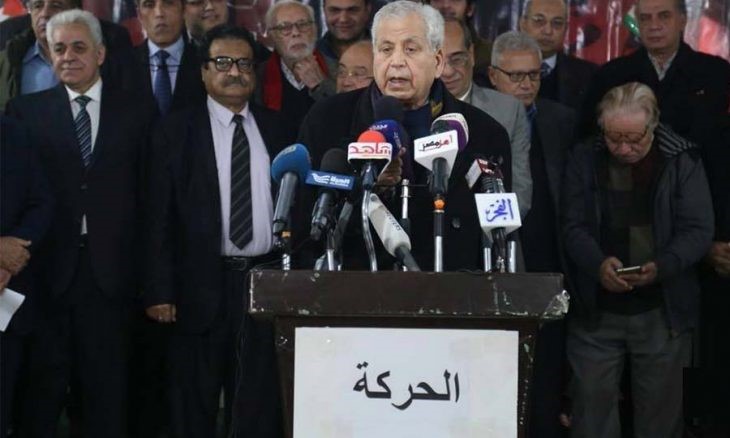
Giza governorate witnessed protests after the murder of a young man called “Eslam Al-Ostraly”, who was 26 year-old and owned a shop for selling pigeons and birds. After his arrest for many days due to a verbal clash with a police secretary during the passing of a security force, which consisted of one officer and four police secretaries. According to eyewitnesses to Al-Manassa, “the fight took place in Al-Madbah street due to the shop’s ambush. The police secretary insulted him with his mother, then he was beaten in the street and dragged to the police station.”
The security forces arrested the mother of the young man, Islam, the Australian, whose death sparked protests in the vicinity of Al-Munib Police Station in Giza Governorate on Monday evening, while a forensic medical source revealed to Al-Manassa that an initial examination of the body showed that he had bruises on various parts of his body.
An intense security presence around the family’s home was observed. A central security vehicle and armored of the police station were surrounding the house, on the day after a rare protest in which dozens participated after the murder of the young man, before the security forces dispersed them.
A forensic source said to Al-Manassa that “the initial examination of the body of the young man, Islam, proved that he had bruises on various parts of the body”. He indicates that the final report would be issued within two weeks.
The Ministry of Interior denied, in a statement by an anonymous security source, what was reported by some media of the terrorist Muslim Brotherhood group regarding demonstrations in Al-Monib neighborhood, in Giza governorate to protest the death of a young man after he was assaulted by a police officer. The source confirmed that all what was reported was fake.
The Interior Ministry statement did not mention the pictures and video recordings which confirm the demonstration of dozens of protesters in front of the police station.
According to the same statement, “the fact of the incident is that a fight occurred in Al-Monib neighborhood between two parties due to financial disputes, then they were arrested. And as a result of the fight, one of them had a state of fatigue, he was transferred to the hospital for treatment and he died while receiving treatment for a heart attack. ”
The Executive Authority in Egypt: Whatever the legislation, the authoritarian regime controls what it does not own
As for the Executive Authority, President Abdel Fattah Al-Sisi issued a decree to transfer the ownership of some state-owned assets to the Sovereign Fund of Egypt. The decision stipulated in its second article, that the ownership of the properties shall be transferred later, according to the attached maps and coordinates In favor of the Sovereign Fund of Egypt and it is recorded in its files. The decision included Tahrir Complex, the Ministry of Interior’s old headquarters, and the land plot of the dissolved National Democratic Party’s headquarters which are near the Egyptian Museum.
Various sources have indicated that the volume of assets that will be transferred in an initial package ranges between 50 and 60 billion pounds. The aforementioned decree raised a widespread controversy due to the regime’s intention to sell several assets to local and foreign investors.
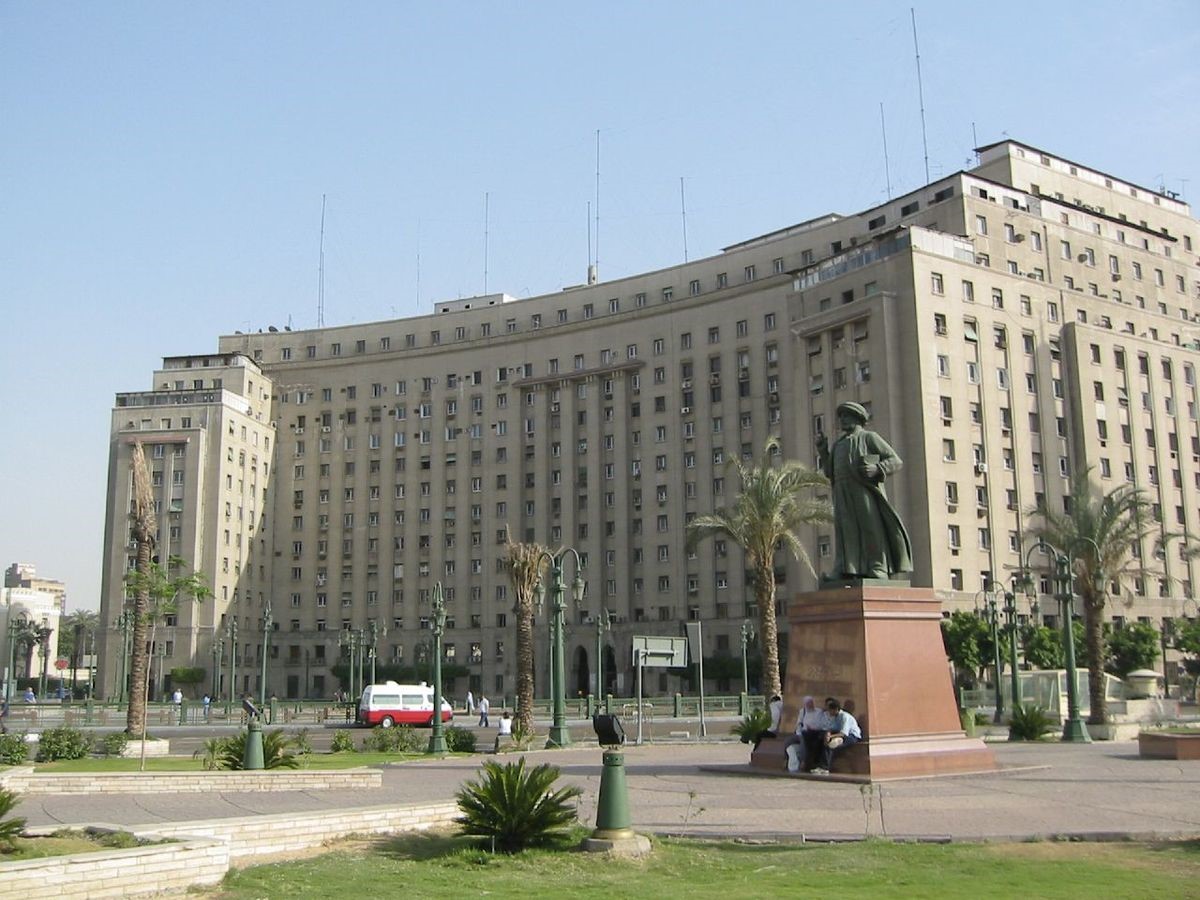
The Egyptian Sovereign Fund raises a hard debate about its role, powers and oversight. It sounds like the Sovereign fund is a way to pay off Egypt’s debts by investing in state-owned assets. It is clear that the Egyptian regime failed to face the critical crisis, and instead of increasing its productive economy, it remains limited and without a clear strategy.
It is noted that the Egyptian external debt in recent years, has raised significantly to record:
The Human Rights Bulletin: Civilians before the military, unfair rulings, and continuous infringed rights
In the Judiciary, a decision was issued by the Military Prosecution to imprison business tycoon Salah Diab, the founder of the Al-Masry Al-Youm newspaper, for 15 days over charges of illegal construction on state lands without obtaining a license. The aforementioned decision was issued by the military prosecution without any details, according to his lawyer. He joined thousands of citizens who have been arrested against the backdrop of Egyptian President Abdel Fattah Al-Sisi threatening “If it becomes necessary? I will deploy the army to all of Egypt’s villages to enforce the law.” Hundreds of citizens were later released, who were able to obtain reconciliation amounts or fine for violations. This occured in addition to the flagrant violation of the law concerning the military trials of civilians, which was done by a decision of President Al-Sisi without any legal basis. This led to the violation of citizens’ rights and the punishment of even those who settled their legal status previously. Military prosecutors do not have sufficient information about case files because there are no judicial or local inspection committees that could be relied upon in each case separately. Therefore, it relies only on the records of security investigations and the files of violations referred from the provincial offices, based on the reports of the localities.
This caused a great failure in the details of the violations, as a large number of reconciled violations were referred as their data was not updated to the governorates as well as dozens of cases in which the localities failed to prove the new facts or their refusal to remove the violating buildings for technical reasons for which citizens are not responsible.
Egyptian journalist Shimaa Samy was arrested from her Alexandria home on May 20.
— Mona Seif (@Monasosh) May 28, 2020
It's been 8 days since her arrest and her location continues to be entirely unknown to her lawyers and family. Her family reported her arrest to general prosecutor and MOI#شيماء_سامي_فين pic.twitter.com/Efyq5AmvvG
Meanwhile, economic and social rights in Egypt have severely declined after the Supreme Administrative Court decided to dismiss three employees of the National Post Authority from service, based on their strike in 2014, justifying this by the fact that jurists refuse to classify the strike as an international right. On Sunday, the 6th of September of 2020, the Menoufia security forces arrested an unknown number of employees of the Misr Spinning and Weaving Company in Shebin El-Kom, because of the workers’ protest in front of the administration building to demand financial rights that the company’s management refused to perform for the workers for the last three months. Social protests are frequent in Egypt. They have reached fifteen protests, which were documented by the Social Movements Observatory from the 15th to the 30th of August, 2020, including eight labor and professional protests, and three social protests.
The Egyptian Judiciary has become like the Executive Authority regarding its strict rullings, as its sentences concerning terrorism cases are varied between the fabricated charges and the armed groups. Giza Terrorism Criminal Court, sentenced a defendant to life, and strict imprisonment of 15 years for 3 others in Case No. 472 of 2016, for accusing them of joining a terrorist group and spreading false news.
While the Second Circuit, the Giza Terrorism criminal court, sentenced the accused, Ahmed Eid Mustafa, to life, in the re-proceedings of his trial in the case known in the media as “ISIS in Upper Egypt”. It also sentenced a defendant to 15 years and 5 years imprisonment for another in the case known in the media as “storming the Atfih police station.”
Meanwhile, the State Security Prosecution decided to renew the custody of journalist and researcher Shaima Sami for a period of 15 days without her attendance before the prosecution in Case No. 535 of 2020 which is listed by the Supreme State Security. The Supreme State Security Prosecution renewed the detention of journalist Haitham Hassan for 15 days pending Case no.586 of 2020, under the investigations of the State Security before .
On other hand, the Cairo Economic Misdemeanor Court postponed the trial of the defendants in the case of Menna Abdel Aziz, in connection with what was published on social media, to the 14th of September as the defendant, Mazen was not brought from his prison. However, it sentenced the show dancer Sama Al-Masry to two years , under charges of inciting immorality and assaulting the values and principles of Egyptian society, with a fine of 300 thousand pounds.
A consultant psychiatrist, Amr Abu Khalil, 58 years old, died yesterday inside prison at Tora 2 high-security prison “Scorpion”, nearly a year after his arrest, according to his brother, Haitham Abu Khalil, a journalist on the Al-Sharq channel that broadcasts from Turkey. He stated that the death of his brother is due to “medical negligence”, while the Egyptian Ministry of Interior stated that he died due to a drop in blood circulation.
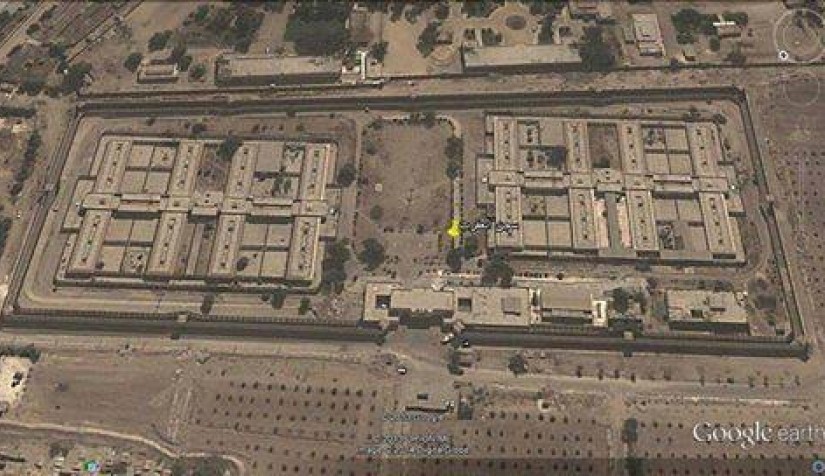
Abu Khalil is the third prisoner whose death is announced inside Scorpion Prison during the past three weeks. After suffering from sickness during his imprisonment, the family of prisoner Ahmed Abdel Nabi announced his death on the 2nd of September, days after the Ministry of Interior announced the death of the Brotherhood leader Issam El-Erian in the same prison, in mid-August.
On another level, the repeated number in the rights bulletin concerning Egypt, is the number of deaths among doctors due to the Coronavirus pandemic. As according to the official page of the Egyptian Medical Syndicate:
Tunisia
The political life in Tunisia: The Convergence of Populism and Political Money
Concerning Political life and the details of the transformations of balances within the Tunisian Parliament, Dignity coalition allied with the Heart of Tunisia party, despite the previous statements issued by Nabil Karoui and Seif Al-Din Makhlouf about their inability of joint agreement and an alliance. The Populist discourse usually makes its owner an embodiment of the values and identity of the majority. The Dignity coalition does not demand accelerating the trial of political money and the circles of media influence to implement the principles of law and its state, but rather it allies with it. However, its bets on preserving its presence while suspending its principles and fragmenting them, especially since its opponents, who are considered revolutionaries, have separated from it.
New Government and unclear future
As a result of voting to confidence in favor of Mechichi’s government last week, power was handed over between the government of Fakhfakh and Mechichi’s government in a motorcade attended by the President of the Republic. Despite the fact that the attitude of the public opinion concerning the new government is positive, it remains worried regarding the expectations of the new government’s performance:
The Political Barometer of September of the Emrhod Consulting Institute, in cooperation with Channel 9 and Business News site, presented new figures regarding the choice of Mechichi of the new government:
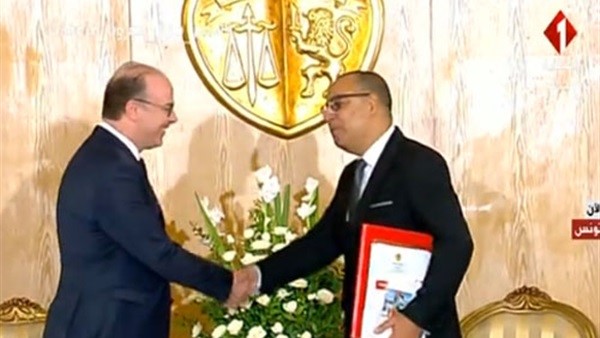
The public opinion is still following the details of the dismissal of Dean Chawki Al-Tabib, as the latter stated on a radio program that he had been subjected to widespread denigration campaigns that included him and his family by Elyes Fakhfakh and his partners, due to his intervention in the conflict of interest case that affected the latter. Al-Tabib expressed that this dismissal is morally corrupt and legally null, and he expressed the reasons for holding his position. Later, the administrative court rejected Al-Tabib’s appeal.
Without indulging in the details of the dismissal, the governmental work seems to be indulged in the tensions of the political conflict and its narrow interests. This is reflected in the work of all independent institutions and bodies. This entrenches the reality of disappointment and the lack of clarity that affect the orientations of the Tunisian public opinion.
Health Pandemic Crisis: Coexistence, despite limited resources, is it an opportunity to review the mechanisms of decision-making and its implementation?
Managing the health crisis represents relative success, and causes deep and circumstantial failure. The numbers of the victims of the coronavirus returned to rise after the lifting of the comprehensive quarantine and the opening of the Tunisian borders. It is clear that managing the crisis achieved relative success, due to strict measures – Draconian – while the defect is in decision-making institutions and its implementation, which became clear after opening the borders. The problem of coordination, the provision of resources, the tension among the center (the Executive Authority), the decentralized institutions and the decentralized authority, remains serious without any signs to review it in light of the COVID-19 crisis.
Among the details of the foregoing, the school return preoccupied the public opinion, especially after the suspension of educational institutions and lessons during the quarantine. School return has been determined in its normal deadlines on 15/09/2020 by adopting the day-to-day system and without reducing the number of usual subjects, but with the possibility of reducing the number in holidays. The return is subject to adopting the health protocol of wearing masks and physical (social) distancing while reducing the number of students within the same department, according to Lassaad Al-Yakoubi The general secretary of the General University of Secondary Education. Al-Yakoubi confirmed that the procedures adopted state that in case it is proven that there are 3 cases or more in one section, the affected cases shall be isolated and the rest may continue to be taught.
The issue of the required resources to implement the health protocol remains highly argued, and in light of the lack of water in many schools, the Tunisian Ministry of Health requested UNICEF to provide schools with tanks of water.
Meanwhile, and with the continuous increase in the number of the infected in many governorates, the crisis management has become important due to the spread of the pandemic and the epicenters. The neighborhood of Al-Khasa in Siliana was closed, and the Municipal Council of Souk Al-Sabt municipality in Jendouba, approved on Tuesday, the 8th of September 2020, a proposal on imposing a curfew in the village of Al-Khashiniyeh in the municipality of Al-Makan, for a period of a week, after 10 infected cases were recorded in the village. On the other hand, it was decided to lift the curfew in the state of El-Kef after the decision of the Regional Committee held on Monday, September 7, 2020, to avoid and confront disasters. It also decided the return of the weekly market, starting next Sunday, while keeping the bathrooms and wedding halls closed, and banning the use of the Shisha in closed places in cafes. Many bank branches were also closed due to monitoring cases of Coronavirus infection, such as what happened in Houmt Souk, Djerba, after 4 employees working in a branch were infected, as well as a bank branch in El Menzah VI.
On the other hand, a young man insisted on holding his wedding despite being infected with the Coronavirus, and he was imprisoned as a result of this incident for deliberately harming the guests in the governorate of Kasserine. These practices represent a real danger in light of their spread due to complacency, indifference and lack of respect for the required health rules.
Due to this critical situation, the Minister of Health declared, through a press conference that took place on Wednesday 09/09/2020, a number of measures which are taken by the Ministry of Health to face this pandemic. One of the most important measures is the inclusion of private analysis laboratories to carry out laboratory analyzes for the virus, and to equip all laboratories with all the requirements in order to carry out tests and allocate an entire department for Coronavirus in Sahloul Hospital.
Dr. Nassaf Bin Alia was appointed the official spokesperson of the Ministry of Health.
Parallel to the health crisis, there are signs of a recurrence of the flood disaster due to the heavy rains in light of poor infrastructure. In addition there is an absence of a medium and long-term strategy to confront the climate change that affects Tunisia and the rest of the world. Each of the governorates of Monastir and Mahdia, especially the Boumerdes region, witnessed major floods, while similar floods swept off a 4 year-old girl in the Maraghma area of the town of Wadi Melis from Jendouba.
Meanwhile, social protests continue in several regions in Tunisia, including what the National Company of Water Exploitation and Distribution indicated on Tuesday, the 8th of September, in a report after the storming of a pumping and cooling boat of potable water in the beach of al-Fajah from the governorate of Gabes. The shutdown of water pumping and cooling equipment by a group of residents are required to supply them with irrigation water from the return water network. According to the company, there would be a cut off in the supply of drinking water in Hamma, Dharma and Greater Gabes.
The transport of phosphate by trains to the Tunisian chemical Group (Complex) factories in Al-Mdhila, Gabes and Sfax, continued to stop for the twelfth day due to the failure of negotiations over a set of financial demands concerning train drivers and mainly related to the grant of additional hours.
On another level, on the morning of Sunday, the 6th of September 2020, a terrorist operation targeted the agents of the National Guard in Sousse Akouda , which resulted in the death of one of them, the martyr guard agent, Sami Mrabit, and wounding the agent, Rami LImam, as a result of multiple stabs from the terrorists. The security units in Sousse killed three of the perpetrators. Also, following the perpetrators is still ongoing. The number of suspected persons who have been arrested so far has increased to 9. Concerning the foregoing, 4 persons who glorified (supported) the terrorist operation were arrested.
Libya
Delegates from Libya’s rival administrations met for talks in Morocco, in the city of Bouznika.
The meeting was a result of the efforts of the Moroccan diplomacy and the Humanitarian Dialogue Organization in Geneva to bridge the gap between the views.
The Libyan-Libyan dialogue: New names for an international game that does not want to leave Libya
The negotiations started on Saturday-Sunday and were extended to Wednesday until Thursday 10/09/2020 with the possibility of extending them for an additional two days at the request of the two Libyan delegations. Abdel Salam Safrani, a member of the Libyan State Council delegation, announced earlier about the possibility of reaching understanding between the two Libyan negotiating delegations. In Morocco, Safrani,who spoke on behalf of the two Libyan negotiating delegations, added that the Libyans focused in their political dialogue in Morocco, on the political and institutional division, with a focus on Libyan institutions, because “corruption has spread in Libya”, according to him. In the first statement of the Libyan negotiators, since the start of the Libyan political dialogue in Morocco, yesterday, Sunday, the Libyan negotiator revealed that the negotiations included Article 15, which stipulates seven state sovereign positions. The Libyan negotiations also focused on the oversight bodies, “because this matter is a concern for every Libyan”, according to the Libyan spokesman. The Libyan negotiator described the atmosphere inside the Libyan-Libyan negotiations in Morocco as very positive.
Discussions took place between the delegations of Parliament and the Supreme Council of State in two sessions during the second day of negotiations, about choosing the figures who would be appointed to the sovereign positions, structuring state institutions, establishing a ceasefire, in addition to other files. The first round of the dialogue took place in an atmosphere of confidentiality. However, the two delegations issued a joint statement in which they declared their desire to reach an agreement that may end the crisis. The statement appreciated the role of Morocco that hosted the dialogue, and the positive atmosphere it provided for its success.
Article 15 of the Skhirat agreement was the focus of the main negotiations, regarding the contested sovereignty positions between the Government of National Accord in Tripoli, Western Libya, and the Tobruk Parliament in the East of the country.
It is the same subject of the dialogue session on Thursday, where negotiators continued to bridge the gap regarding the positions of sovereignty, while the agreement on the foreign presence (intervention) does not seem easy so far.
Meanwhile, and in light of a major media blackout, representatives of the Parliament and the Government of National Accord have met in Geneva since Monday, 09/09/2020. During the sessions in Geneva, the House of Representatives was represented by MP Ziad Daghim and Abdel Majid Mlieqta who is the founder of the National Forces Alliance and the advisor to the Speaker of Parliament, Aguila Saleh. The State Council was represented by Nizar Kaawan and Bashir Al Hosh who are founders of the Justice and Construction Party in Libya. The Presidential Council was represented by Taj Al-Din Al-Razaki, who is Fayez Al-Sarraj’s advisor for security affairs, and Hafez Qaddour, the Ambassador of the Government of National Accord to the European Union.
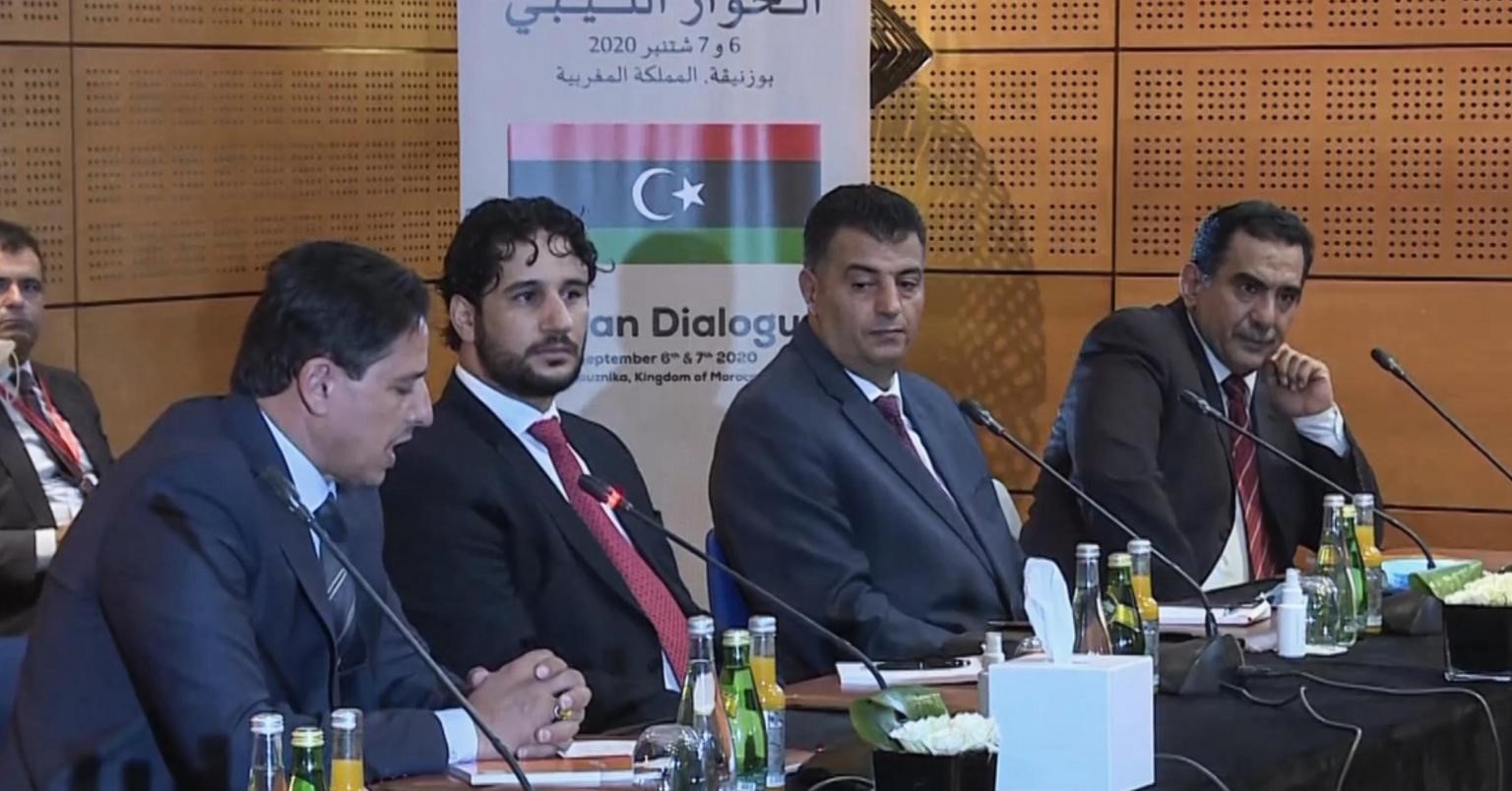
The Choice of Media blackout in Geneva was in order to make the dialogue of the Libyan parties without any pressures. Media reports confirmed that the Geneva talks Libya’s rival administrations began, since Monday, in parallel with the Moroccan negotiations with media blackout to pave the way for a political settlement.
As the known tradition of the International parties, welcome letters and calls for settlement were from everyone. This was stated by the Russian Foreign Minister, Sergey Lavrov, and the United States Embassy in Libya.
In another context, the European Union intends to lift the sanctions, especially the travel ban and the asset freeze against the Speaker of the House of Representatives, Counselor Aguila Saleh, the President of the outgoing General National Congress, Nuri Abu Hamin, and the head of the National Salvation Government , Khalifa al-Ghuwail.
Three diplomats stated on Wednesday to Reuters that, “the European Union countries tend to lift the sanctions especially the travel ban and the freezing of assets of “Saleh, Abusahmin, and Khalifa Al-Ghwell, besides removing them from the blacklist of sanctions” to encourage peace efforts and ensure that the bloc plays a pivotal role in any settlement through negotiations”. It is noted that the European Union has blacklisted Aguila Saleh, Abu Sahmin and Khalifa Al-Ghwell since 2016, accusing them of obstructing peace efforts in Libya.
It is clear that, the European powers, after months of the decline of their role, take the opportunity to reassert their role in Libya, especially since Russia and Egypt in the meantime presented Aguila Saleh as an alternative to Haftar, who may be considered a lost horse after the government of National Accord (GNA) took control of Tripoli.
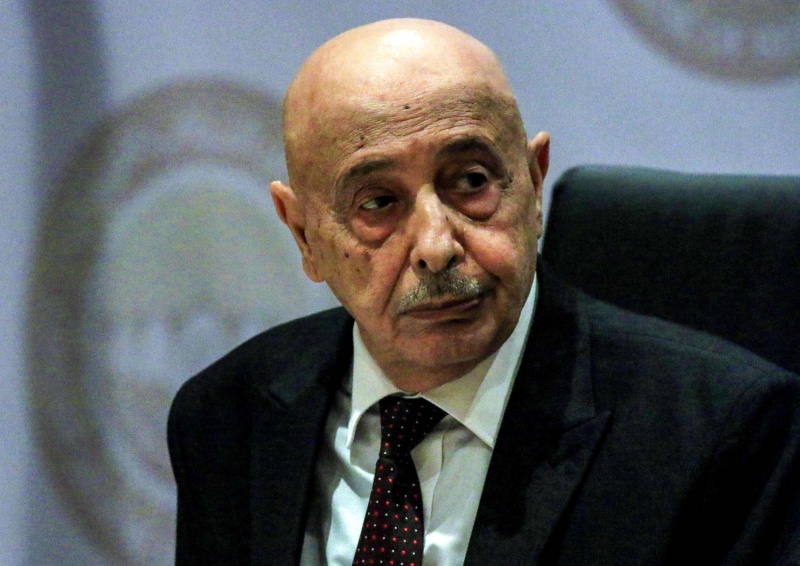
On the health level, the National Center for Disease Control continues to enumerate cases of infection, deaths and recoveries in addition to the analyses that remain less than required. The mayors of the municipalities of Greater Tripoli demanded the Presidential Council to isolate the municipalities and declare a state of emergency to curb the spread of the Corona pandemic.
With regard to the latest developments in the spread of the virus in Egypt, Tunisia and Libya :
Last Update : 03/09/2020 - 15:00
Tunisia :
Libya :
Egypt :
This post is also available in:
![]() Arabic
Arabic